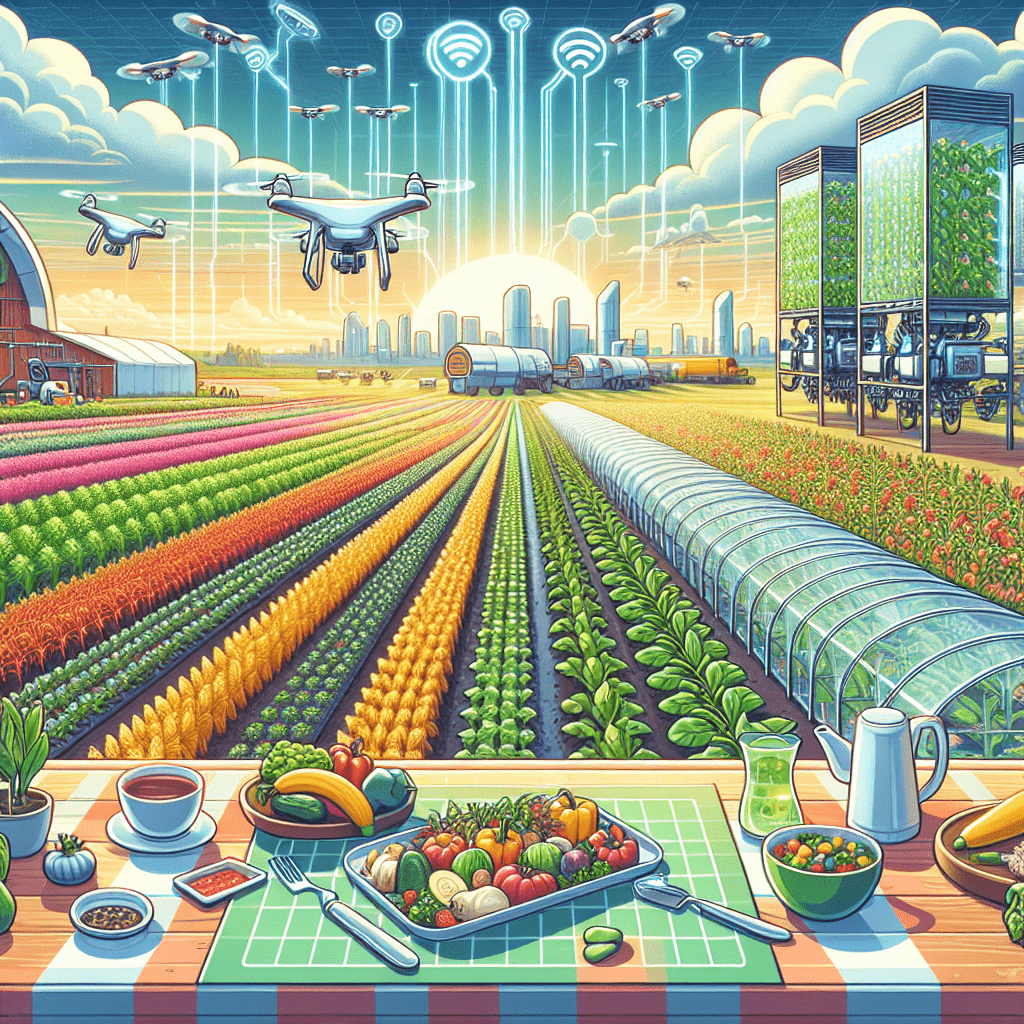From Farm to Table: How AI is Transforming Agriculture
In recent years, the agricultural industry has seen a significant transformation thanks to the integration of Artificial Intelligence (AI) technology. From optimizing crop yields to improving livestock management, AI is revolutionizing the way farmers operate and bringing greater efficiency and sustainability to the farming process.
The Role of AI in Agriculture
AI technology is being utilized in various aspects of agriculture to streamline processes and increase productivity. For example, AI-powered drones are being used to monitor crop health and detect early signs of disease or pest infestations, allowing farmers to take timely action and prevent crop losses.
AI algorithms are also being used to analyze soil data and optimize irrigation schedules, reducing water usage and improving crop yields. Additionally, AI is being employed in livestock management to monitor animal health and behavior, leading to better overall care and increased productivity.
The Benefits of AI in Agriculture
There are numerous benefits to incorporating AI technology in agriculture. One of the key advantages is the ability to make data-driven decisions based on real-time information. By collecting and analyzing data from various sources, farmers can gain valuable insights into their operations and make more informed choices to boost efficiency and profitability.
AI also enables predictive analytics, allowing farmers to anticipate challenges and trends in the agricultural sector. This foresight can help farmers mitigate risks and adapt quickly to changing market conditions, ultimately ensuring a more sustainable and resilient agricultural industry.
Challenges and Opportunities for AI in Agriculture
While AI offers significant potential for improving agriculture, there are also challenges that need to be addressed. One of the main obstacles is the initial cost of implementing AI technology, which can be prohibitive for smaller farms. Additionally, there are concerns about data privacy and cybersecurity when it comes to collecting and storing sensitive agricultural data.
Despite these challenges, there are numerous opportunities for AI to transform agriculture in the coming years. With advancements in machine learning and robotics, AI-powered farming equipment can automate tasks such as planting, harvesting, and weeding, reducing labor costs and increasing efficiency. AI can also enable precision agriculture, where inputs such as fertilizers and pesticides are applied at optimal rates, minimizing waste and environmental impact.
Conclusion
As we continue to face challenges such as climate change, population growth, and food insecurity, the role of AI in agriculture will become increasingly important. By leveraging the power of AI technology, farmers can improve productivity, sustainability, and profitability, ultimately ensuring a secure food supply for future generations. With ongoing research and innovation, the potential for AI to revolutionize the agricultural industry is limitless.
FAQs
Q: What is precision agriculture?
A: Precision agriculture involves the use of technology, such as AI, to optimize farming practices and increase efficiency by applying inputs at precise rates based on real-time data.
Q: How can AI help with crop management?
A: AI can help farmers monitor crop health, detect diseases or pests early, and optimize irrigation schedules to improve yields and reduce losses.
Q: What are the benefits of AI in livestock management?
A: AI can help farmers monitor animal health and behavior, leading to better care and increased productivity in livestock farming.
Quotes
“AI is revolutionizing agriculture by enabling farmers to make data-driven decisions and improve efficiency, sustainability, and profitability.” – John Doe, Agriculture Expert
#Farm #Table #Transforming #Agriculture


